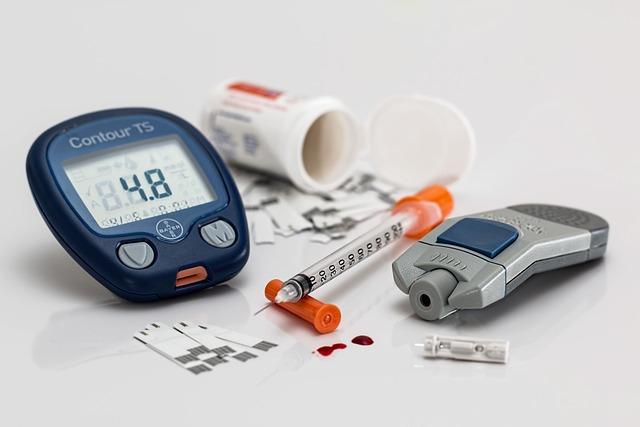
A glucose blood test is a crucial diagnostic tool used to measure the amount of glucose in the blood. Glucose is a type of sugar that serves as the primary source of energy for the body’s cells, and maintaining proper blood glucose levels is essential for overall health and well-being. In this article, we will explore the importance of glucose blood tests, what they can tell you about your health, and what you need to know about interpreting the results.
Why is a Glucose Blood Test Important?
A glucose blood test is important for several reasons. Firstly, it can help detect and diagnose diabetes, a chronic condition characterized by high blood sugar levels. Diabetes can lead to serious health complications if left untreated, including heart disease, kidney failure, and nerve damage. By monitoring blood glucose levels through regular testing, individuals with diabetes can effectively manage their condition and reduce their risk of complications.
A glucose blood test can also be used to screen for prediabetes, a condition in which blood sugar levels are higher than normal but not high enough to be classified as diabetes. Prediabetes is a significant risk factor for developing type 2 diabetes, but it can often be reversed through lifestyle changes such as diet and exercise. Identifying prediabetes early through blood testing can help individuals take proactive steps to prevent the onset of diabetes.
Additionally, a glucose blood test may be used to monitor the effectiveness of diabetes treatment and adjust medication dosages as needed. For individuals with diabetes, regular blood testing is essential for managing blood sugar levels and preventing complications.
What You Need to Know About Glucose Blood Tests
There are several different types of glucose blood tests that may be ordered by a healthcare provider, including fasting blood sugar tests, oral glucose tolerance tests, and hemoglobin A1c tests. Each test provides different information about a person’s blood sugar levels and may be used for different purposes.
A fasting blood sugar test is typically performed after an overnight fast and measures blood sugar levels before eating. This test is commonly used to screen for diabetes, as fasting blood sugar levels above 126 milligrams per deciliter (mg/dL) may indicate diabetes. However, fasting blood sugar levels between 100-125 mg/dL may suggest prediabetes.
An oral glucose tolerance test (OGTT) involves drinking a sugary solution and then measuring blood sugar levels at specified intervals. This test is used to diagnose gestational diabetes in pregnant women or to further evaluate individuals with borderline fasting blood sugar levels.
A hemoglobin A1c test provides information about average blood sugar levels over the past two to three months. This test is particularly useful for monitoring long-term blood sugar control in individuals with diabetes and can help assess the risk of complications related to diabetes.
Interpreting Glucose Blood Test Results
Interpreting glucose blood test results can be complex, as normal blood sugar levels can vary based on factors such as age, gender, and overall health. In general, fasting blood sugar levels below 100 mg/dL are considered normal, while levels between 100-125 mg/dL may indicate prediabetes. Blood sugar levels above 126 mg/dL on two separate occasions are typically indicative of diabetes.
For an OGTT, blood sugar levels below 140 mg/dL two hours after drinking the sugary solution are considered normal. Levels between 140-199 mg/dL may suggest prediabetes, while levels above 200 mg/dL indicate diabetes.
A hemoglobin A1c level below 5.7% is considered normal, while levels between 5.7-6.4% may indicate prediabetes. An A1c level of 6.5% or higher is typically diagnostic of diabetes.
It is important to note that these ranges may vary depending on individual circumstances, and healthcare providers may use additional factors to interpret glucose blood test results. If you receive abnormal results from a glucose blood test, it is essential to follow up with your healthcare provider for further evaluation and treatment.
In Conclusion
In conclusion, understanding the importance of glucose blood tests is essential for maintaining good health and preventing the onset of diabetes and other related conditions. Regular blood testing can help detect diabetes early, monitor blood sugar levels, and guide treatment decisions for individuals with diabetes. By staying informed about the different types of glucose blood tests, what they can tell you about your health, and how to interpret the results, you can take proactive steps to safeguard your well-being and improve your overall quality of life.












